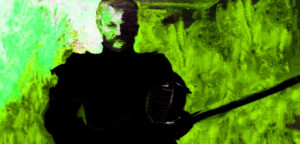
Lessons Learned from a Green Knight, or How I Set Classroom Expectations
My model for setting classroom expectations is a green giant. No, not the jolly green one of vegetable fame, but the playful, disruptive, yet effective Green Knight of the 14th-century romance Gawain and the Green Knight. The scenario unfolds like this: Until his arrival, King




